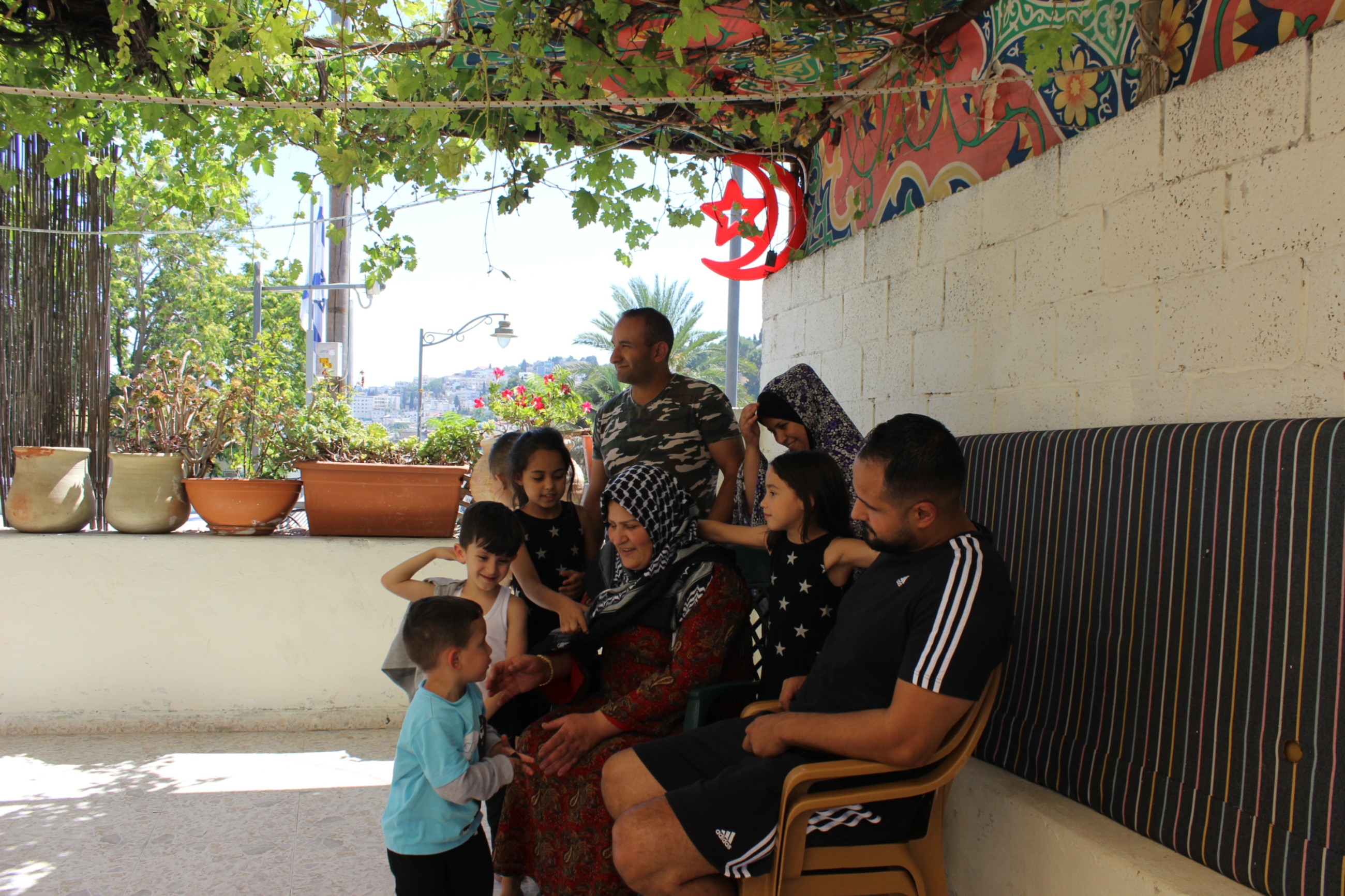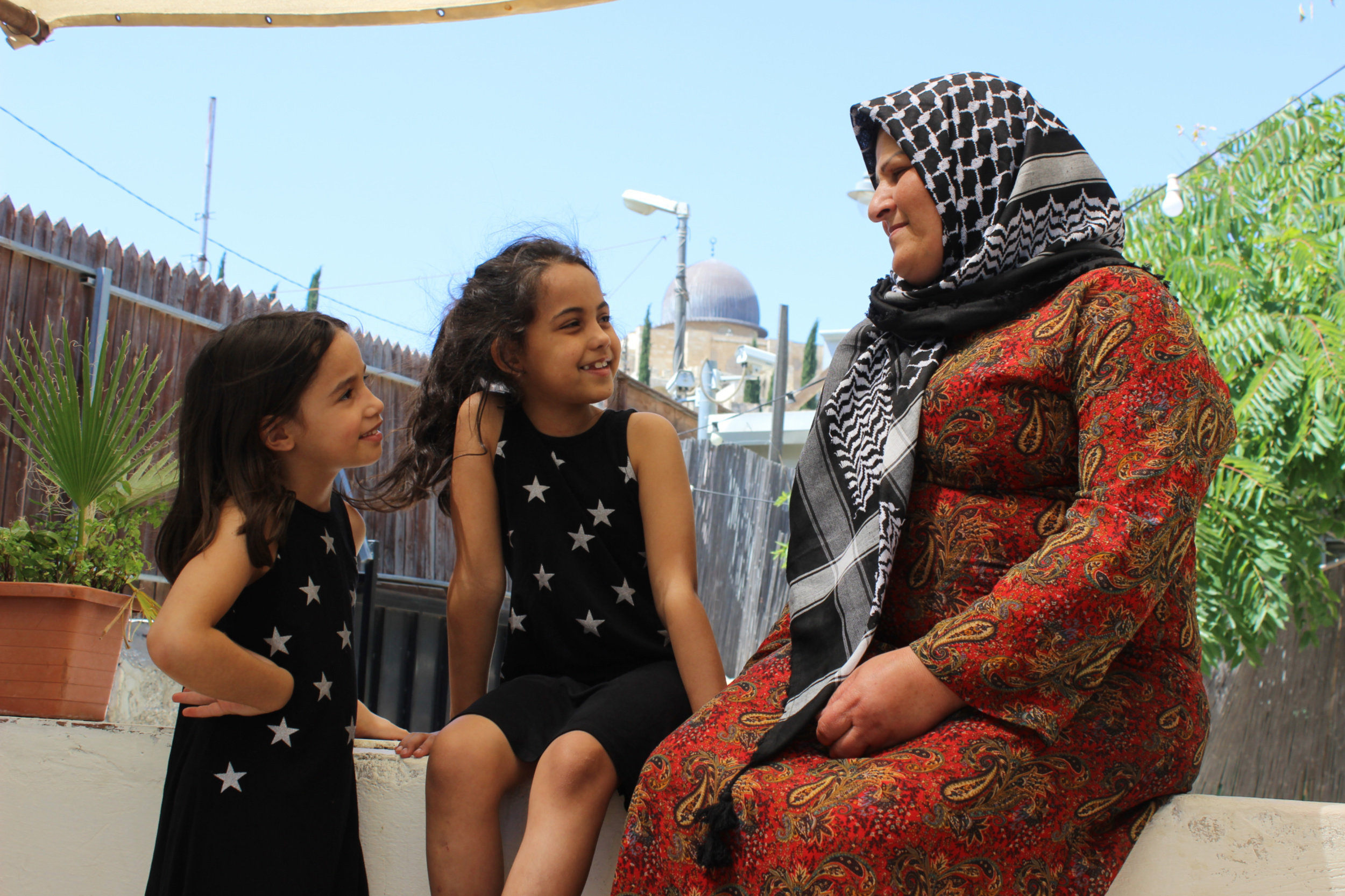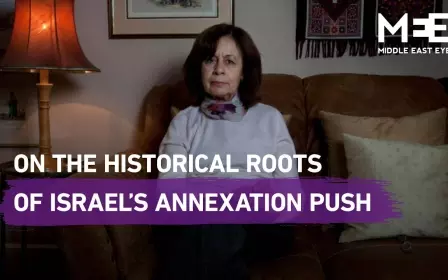'Who listens to the voice of the oppressed?': Palestinian family faces latest setback to save Jerusalem home

Amal Sumarin has one wish.
"All I dream of is for my funeral to proceed from this house to the cemetery near by," the 58-year-old told Middle East Eye.
But the Jerusalemite Palestinian - whose home lies a stone's throw away from the Al-Aqsa Mosque compound - knows that such ambitions are anything but simple in occupied East Jerusalem’s Old City.
"For 30 years, I have been fighting to stay here and now we are facing a new evacuation order to leave the house for settlers," she said.
With her head covered in a keffiyeh - a traditional Palestinian scarf - as she looks from room to room, Amal recounts her family’s struggle to keep their home amid pressure from Israeli authorities.
New MEE newsletter: Jerusalem Dispatch
Sign up to get the latest insights and analysis on Israel-Palestine, alongside Turkey Unpacked and other MEE newsletters
On Tuesday, an Israeli court in Jerusalem issued Amal and her sons with a 45-day notice to vacate the house, the latest evacuation order in the judicial battles that have been taking place in East Jerusalem for decades.
Fighting controversial property law
In the 1940s, Moussa Sumarin, one of the Sumarin family elders, built a house on land he owned in the village of Silwan, just steps away from the Al-Aqsa Mosque. He also cultivated produce in an adjacent two-dunam (2,000 square metre) plot.
Following the 1967 Middle East war, during which Israel seized control of East Jerusalem, Moussa’s sons fled to Jordan. Moussa's grandson Mohammed, Amal’s husband, then bought the Silwan house from his uncle in 1983.
The land currently owned by the Sumarin family in Silwan is about 750 square metres. Amal divided the large family house into three homes after her sons got married. The building is now home to 16 people, many of them children.
Still, the location of the home in the Wadi Hilweh neighbourhood of Silwan has set it in the crosshairs of the "City of David" tourism project, which claims the area lies where the biblical King David once ruled. It is one of the Israeli settlement projects that the International Court of Justice has said is contrary to international law.
"Settlers have been casting their eyes on this area for a long time," Amal said. "They claim that our house lies within the City of David. I respond by saying that the old stones of my house are the best witness of our historical presence in this place."
Under Israel's controversial "Absentee Property Law", which rules that Palestinians may lose claims to their homes in Jerusalem and present-day Israel if they were not inhabited in the immediate aftermath of the conflict, the Sumarin home is now under threat.
Notwithstanding the fact that Amal and her husband have been living in this house for 40 years, including before Moussa Sumarin's passing, Israeli authorities reclassified the house as absentee property after the elderly man's death. It was claimed that his children were living abroad and he had no immediate heirs in Jerusalem.
Amal and Mohammed Sumarin were taken by surprise when they received their first evacuation order in 1991.
Since then, they have found themselves embroiled in a battle to prove their ownership of the house, while the adjacent lands Moussa Sumarin had once cultivated were seized by Israeli settlers under the protection of Israeli forces.
Amal remembers how she once used that land to raise goats, chickens and rabbits, how she would relax beneath the pomegranate and fig trees or in the shade of a grapevine.
But now, the land has been confiscated and incorporated into the City of David project.
Since the Sumarins' land was forcibly expropriated, the family has been under extreme pressure to leave the house, which is seen as an obstacle to the settler expansion plans.
Although Amal and Mohammed have submitted proof of ownership, Israeli courts nonetheless reviewed another evacuation order in 2011.
The judge at that time, however, ruled that the family could continue to live in the house so long as Mohammed Sumarin was alive.
Amal's husband passed away in 2015 - leaving his wife and sons to face the settlers in the courts once again.
The property was transferred to the Jerusalem Development Authority, then to the Himanuta company, an arm of the Jewish National Fund (JNF).
In September, an Israeli magistrates' court issued yet another evacuation order, giving the Sumarins three months to leave the home. Amal and her family refused, appealing the decision.
But on Tuesday, the appellate court upheld the decision of the magistrates' court.
Amal, whose name means "hope", is now planning to appeal in front of the Israeli Supreme Court, although she has little hope she will be able to remain in her home.
When asked about her reaction upon receiving the latest evacuation order, she said she "screamed at the top of my lungs".
"But who listens to the voice of the oppressed in Jerusalem?" she added. "I had no choice but to calm down for the sake of my granddaughters, who were crying uncontrollably."
Eight-year-old Hala sits by her grandmother, on the lookout for tears, resting her head on Amal's chest as she listens to the story of her family's ordeal.
The family's experience has robbed Hala of much of her childhood innocence.
"They want to take over the house, which I hope will never happen because our house is close to my school and to the Al-Aqsa Mosque in the Old City where I go to learn and pray," the girl told MEE. "Our house is ours and no one is allowed to steal it from us."
'Until the last breath'
Hala's father, Alaa Sumarin, has been busy handling enquiries from legal organisations and news outlets seeking to document the family's struggle.
He says his children's experience is not so different from his own in the 1990s, growing up amid constant tension because of the settlement organisations’ attempts to claim the house.
"Settlers are surrounding us right and left, and we had to live with their daily harassment. My childhood was not quiet and neither is my children's," he said.
In addition to settler harassment, excavation work done by Israeli authorities underneath Silwan have deprived the Sumarins of sleep for many years.
Despite their suffering, the Sumarins refuse to give up on their home. With the Al-Aqsa Mosque so close, they say they feel as if they are living in a sacred place, and that they won’t concede - regardless of the circumstances.
"Our ordeal is a difficult one, and hope is very dim because the Israeli government is standing behind the settlers, whereas we are fighting this battle alone," Alaa said. "Notwithstanding the financial burden that we are bound to go through, we are determined, more than ever, to keep and maintain our historical rights in our house until the last breath."
Middle East Eye delivers independent and unrivalled coverage and analysis of the Middle East, North Africa and beyond. To learn more about republishing this content and the associated fees, please fill out this form. More about MEE can be found here.






